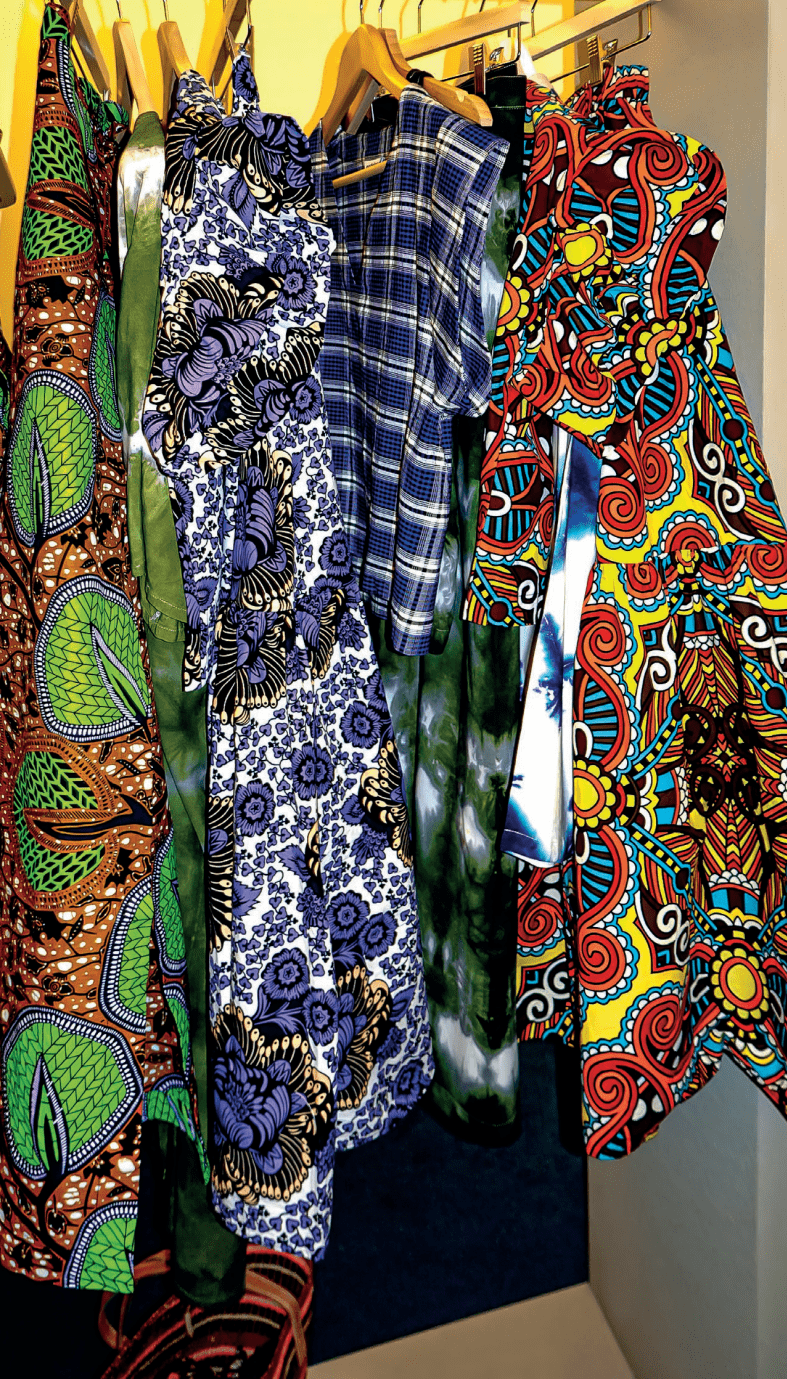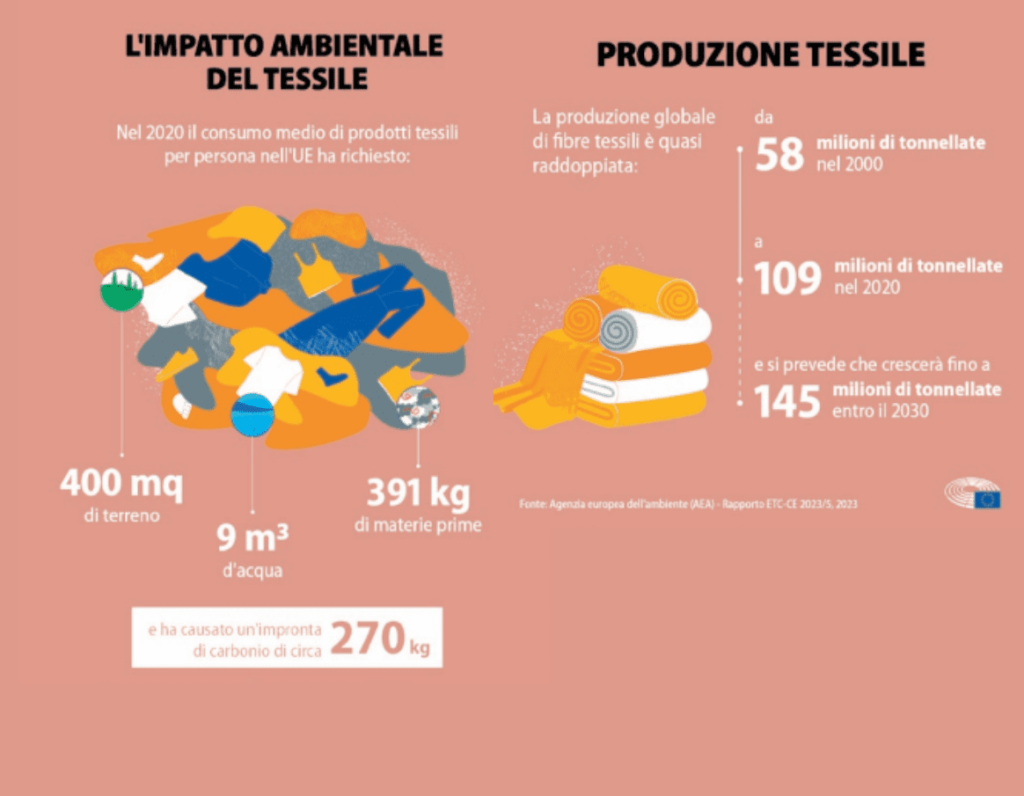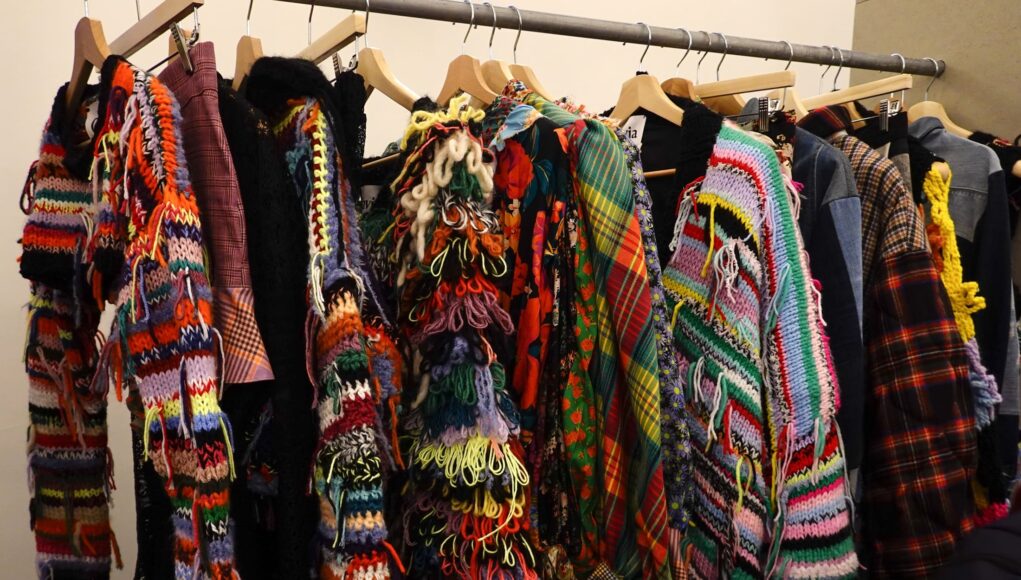Sustainability has become an inevitable theme at every Fashion Week, and it is one of the core strategies of the Camera Nazionale della Moda Italiana (CNMI).
Since 2010, CNMI has been committed to making sustainability a fundamental value within the Italian fashion system by involving its associates and the entire supply chain of the national fashion industry.
Over the past decade, CNMI has collaborated with numerous partners to develop initiatives aimed at accelerating sustainable change in the fashion industry, fostering diversity and inclusion, and promoting emerging designers on both national and international platforms…>>

The European Union Strategy for Sustainable and Circular Fashion.
The “EU Strategy for Sustainable and Circular Textile Products,” adopted by the European Commission on March 30, 2022, aims to ensure that textile products on the European Union market are high-quality, affordable, durable, recyclable, and predominantly made from recycled fibers by 2030.
This strategy intends to shift the fashion industry’s business model from fast fashion to a circular model, fostering sustainability, competitiveness resilience, and innovation.
The strategy includes measures such as promoting cost effective reuse and repair services, making manufacturers responsible for their products throughout the supply chainand encouraging closed-loop recycling while minimizing landfill and incineration.
Specific design requirements proposed in the Ecodesign for Sustainable Products Regulation will ensure the inclusion of recycled fibers in textile products, making them more durable and easier to repair and recycle…>>

The United Nations Alliance for Sustainable Fashion.
The United Nations Alliance for Sustainable Fashion is an initiative aimed at achieving the Sustainable Development Goals (SDGs) through coordinated actions among UN agencies and the promotion of projects and codes of conduct within the fashion value chain.
The alliance seeks to make the fashion industry a driving force in implementing the SDGs, focusing on social issues such as improving working conditions and wages, as well as environmental concerns like reducing industry waste, water pollution, and greenhouse gas emissions.
The fashion industry, worth 2.4 trillion dollars and employing around 300 million people globally, is responsible for 2-8% of global greenhouse gas emissions and about 9% of microplastic pollution in the oceans.
It consumes an estimated 215 trillion gallons of water annually and generates waste from underutilized materials. Through the United Nations Alliance for Sustainable Fashion, the UN is committed to transforming the fashion industry’s negative impacts and harnessing its potential to contribute to sustainable development…>>

Read more… Download our magazine here >>
By Pier Mario Bonatti











